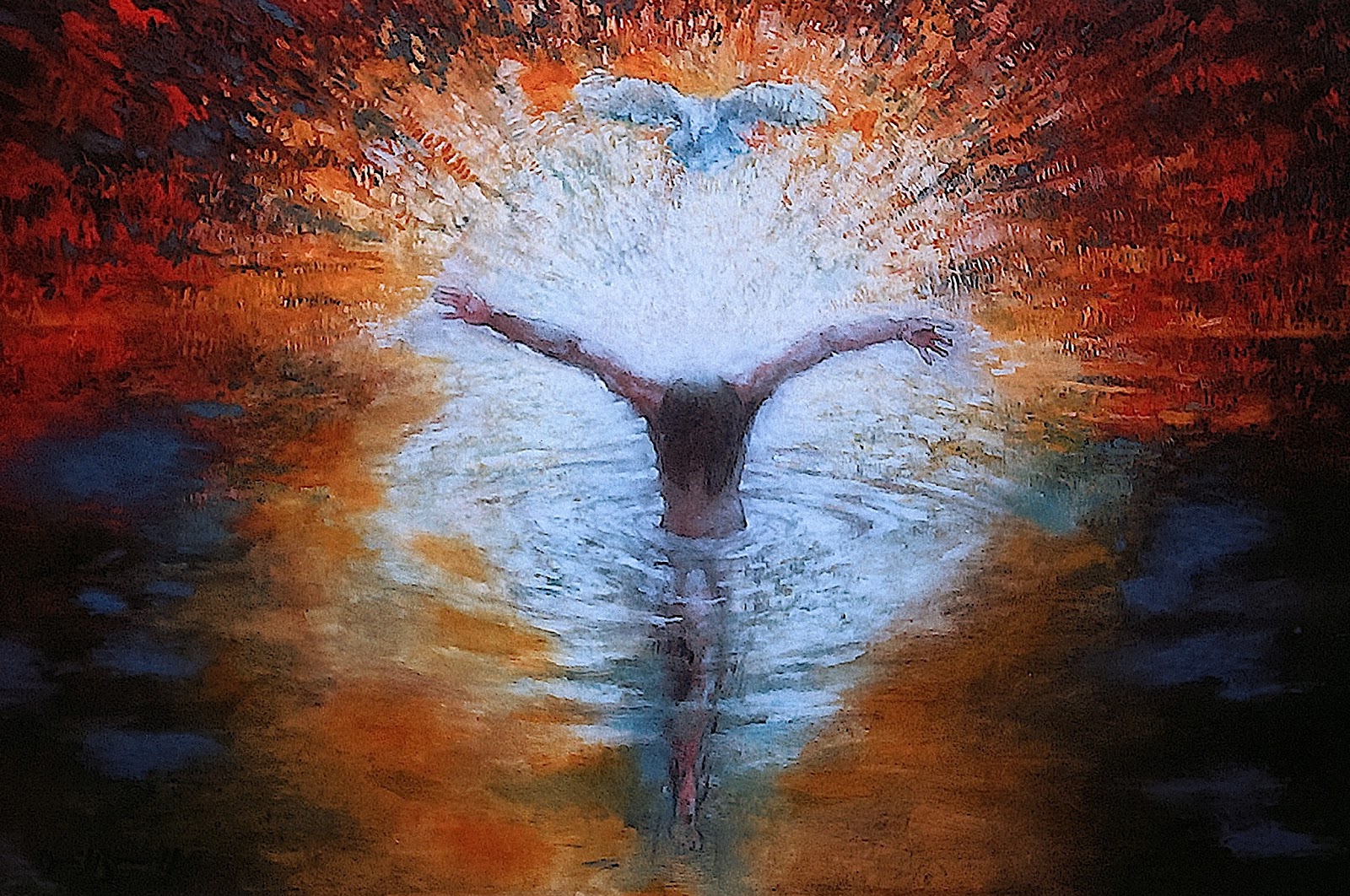 Q. This Sunday’s liturgical celebration of The Baptism of the Lord takes us back to the beginning of Jesus’ public ministry. How does his baptism relate to our own?
Q. This Sunday’s liturgical celebration of The Baptism of the Lord takes us back to the beginning of Jesus’ public ministry. How does his baptism relate to our own?
That’s a great question. First, it must be said that Jesus’ baptism is really the moment when he initiated the Christian sacrament of baptism. What Jesus did was to transform John’s baptism of repentance (which was merely an outward symbol of sorrow and a desire to be cleansed) into an efficacious act that actually had the power to wash away sin.
Q. How did this happen?
A. Jesus, as the sinless Son of God, had no need of repentance or forgiveness. His descending into the water did not sanctify him, but rather sanctified the water, imparting to it the power to forgive sins in Jesus’ name. Think of the Lord’s contact with persons who had leprosy. Normally, touching a person with that disease would render one ritually “unclean”. However, the opposite happens in the case of Jesus. Jesus is not rendered “unclean” in any way – rather, the defiling and debilitating disease is eradicated by the touch of Christ. His holiness is, if you will, contagious. So, anything from the created order that Jesus comes into contact with can be sanctified, made to share in his holiness and purity. This is what is happened with the waters of baptism.
Q. How does Jesus’ baptism correlate with his Passion?
A. That’s a very insightful question. As Pope Benedict wrote about in his Jesus of Nazareth series, the baptism of Jesus was really the beginning of his Passion. It was the start of Jesus’ process of descending into the reality of human sin in order to redeem it. He was already beginning the process of identifying himself with sinful humanity, and taking our sins upon himself, bearing in his own body the consequence of sin, which is death. “The wages of sin is death” (Romans 6:23). Jesus would, of course, complete this mission on the Cross.
In the Old Testament, as well as in the Book of Revelation, the sea is a symbol of death and evil. So, in a sense his emerging from the waters, with the presence of the Holy Spirit, as well as the voice of the Father in Mark 1:11 (“You are my beloved Son; with you I am well pleased”) is a “sneak preview” of Jesus’ powerful Resurrection at Easter: his triumph over sin, evil, and death.
This victory is transferred to Christians at their baptism. Recall that in the ancient Church, converts were fully immersed in water; it was a species of death and burial. Their rising again out of the water was also a foretaste of their own future resurrection, yes, but it was also a summons for them to leave old, sinful ways behind and live the lifestyle of the Kingdom here on earth. As Saint Paul writes,
We are those who have died to sin; how can we live in it any longer? Or don’t you know that all of us who were baptized into Christ Jesus were baptized into his death? We were therefore buried with him through baptism into death in order that, just as Christ was raised from the dead through the glory of the Father, we too may live a new life.
For if we have been united with him in a death like his, we will certainly also be united with him in a resurrection like his. For we know that our old self was crucified with him so that the body ruled by sin might be done away with, that we should no longer be slaves to sin – because anyone who has died has been set free from sin. Now if we died with Christ, we believe that we will also live with him. For we know that since Christ was raised from the dead, he cannot die again; death no longer has mastery over him. The death he died, he died to sin once for all; but the life he lives, he lives to God. In the same way, count yourselves dead to sin but alive to God in Christ Jesus.
Therefore do not let sin reign in your mortal body so that you obey its evil desires. Do not offer any part of yourself to sin as weapons of wickedness, but rather offer yourselves to God as those who have been brought from death to life; and offer every part of yourself to him as weapons of righteousness. For sin shall no longer be your master, because you are not under the law, but under grace (Romans 6:2-14).
Let us avail ourselves often of the sacrament of confession, so that we may begin again, as often as necessary, to get back on the path God called us to in baptism: the journey to becoming saints.
How is your journey to live up to your baptismal calling progressing? How can we help others realize that their baptism calls them to holiness and apostolate (sharing their faith)? Share this post on social media and keep the discussion going!


Trackbacks & Pingbacks
[…] Q and A: The Baptism of the Lord […]
Comments are closed.